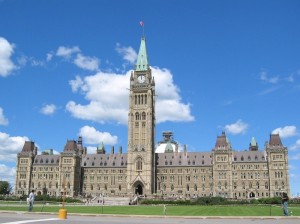A zealous month of phone calls, door knocking, and campaign meetings has come to an end, and a look at the outcome reveals that it was all for nothing.
On November 26, three ridings in Canada held by-elections, all of which wielded candidates in a manner that recreated the pre-by-election landscape in Ottawa: other than new faces, all parties are still represented with the same number of MPs from the same places.
This election did, however, display that the values of Canadians are starting to shift.

Victoria sent NDP Murray Rankin (with 37.2% of the vote) to parliament in succession of NDP Denise Savoie. Joining Rankin in the battle was Liberal Paul Summerville (with 13.1% of the vote), Conservative Dale Gann (with 14.4% of the vote), and Green Donald Galloway (with 34.4% of the vote). Victoria saw a large swell in the number of votes going towards the riding’s Green candidate, with Galloway increasing Green support by 91% since May 2011.
Nexus spoke with Rankin in October about some hot-button issues, namely the sewage-treatment plant that looms in Victoria’s future. He said he was open to learning more about it, but added that at this point it’s been implemented by the government to go in.
“It has been ordered by the government, I’m not sure what people think should be done in the face of a government order,” he said. “I don’t accept the premise that we can just ignore it.”
One province over, the Calgary Centre riding saw a bit more competition, as well as the emergence of a new competitor. Liberals and Conservatives remained the heavyweights, capturing 32.7% and 36.9% of the vote, respectively. However, the emergence of Green candidate Chris Turner is worth noting. Turner debuted with 25.6% of the vote, much more than the 9.9% Green received just over a year and a half ago.
In Durham, Ontario, there were no surprises. Absolutely none. Despite Durhams’s past MP Conservative Bev Oda’s infamous taxpayer-funded $16 glass of orange juice, Conservative candidate Erin O’Toole reigned victorious, capturing 50.7% of the vote.
While the results are interesting, there is something of even greater importance worth noting about this by-election: voter turnout was atrocious. With an average turnout of 36.37% across all three ridings, this is an assault on democracy, which requires the active voice of all citizens to select representatives that truly represent their riding, and, subsequently, the country.
Victoria did come out on top with a turnout of 43.9%, but even that is nothing to boast about. There are many possible reasons for such a low voter turnout. Many people recognize that the results of the by-election would have no impact on how the country is run, and therefore simply neglected their right to vote (by-elections often have lower turnout rates than other elections). Another possibility is that people were simply neglecting their right to vote, a right that people elsewhere in the world quite literally die for.
Whatever the reason may be, not voting distorts the functionality of democracy, and undermines the integrity of democracies.
